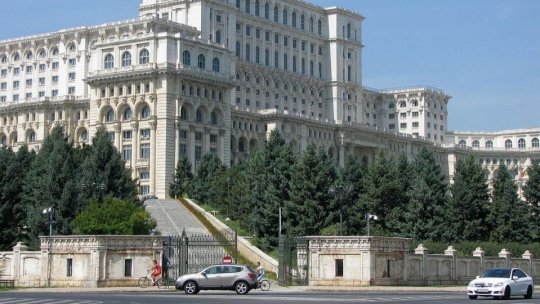Financial Press Review, November 9
Articles from "Ziarul Financiar", "Curierul National", "Economistul" and "Săptămâna Financiară".

Articol de Dinu Dragomirescu, 10 Noiembrie 2010, 10:15
Ziarul Financiar begins with an article which informs us that "people have to pay back 25 billion euro to the banks".
The debt ratio, calculated as a share of the debt service – the installments paid to the bank - in the disposable income of the people increased steeply from 5% in 2004 up to almost 23% in 2009, exceeding twice the average of the euro area.
The value of the population debts and also the business debts has doubled in the last year.
"The over-indebtedness of an important class of debtors is emphasized by the fact that the number of overdue credits is about 50% higher than the number of debtors, and overcomes 1 billion".
Curierul Naţional dedicates its first page to banking issues also, by presenting the opinions of the Raiffeisen Bank Romania President.
The daily writes that "as far as the idea of introducing the solidarity tax for banks", Steven van Groningen considers that forcing banks to pay a new tribute ‘would discourage even more the consumption and the offering of credit".
Under the title "The restructuring lie: the best paid public workers are still paid with more than 12,000 euro every month", Ziarul Financiar writes that the aforementioned public workers "still earn ten times better than the Romanian president, despite the messages related to the budget restructuring, the single salary and how to stop wasting public money".
The same daily outlines that last year, the net foreign investments made in Romania added up to only 3,5 billion euros at country level, 63% less than the 9,5 billion euros record established in 2008.
“Economists say that the sums of money entering the country will increase as soon as the GDP (the gross domestic product) shows signs of recovery", the daily quotes.
"The foreign equity is the best resource we have", as stated by General Manager of the ING Romania Group Mişu Negriţoiu in Economistul.
"We have to speak bluntly. After all, it has been proved that the less reformed and consequently the most unsatisfying sectors in Romania are those that have little or no foreign equity. Think about the situation in agriculture. It is the most neglected sector".
"In Romania, political institutions are not competitive enough," Mişu Negriţoiu added.
There is a big difference between the public and the private sector. The private sector is much more competitive.
The development of the public institutions is not based on competition, recruitment being usually done without observing the impartiality principle.
The majority of the central and local leaders, those who hold positions in the political hierarchy, did not reach that status by means on competitive basis.
Therefore, many fail to meet the expectations.
"All these are connected to the need to restructure political life. Political life can help economy but it can complicate it as well", the General Manager of the Romanian ING Group concludes in Economistul.
Bursa dedicates several articles to the EU Strategy on the Danube area.
The daily quotes what president Traian Băsescu declared yesterday, during the Danube Summit, which took place in Bucharest.
"Romania has very little power in absorbing European funds and runs the risk of receiving smaller allotments in the future".
The president gladly mentioned the fact that President of the European Commission Jose Manuel Durao Barroso, who attended the event, assured him that the European Commission "strongly wishes" to place experts in European fundraising at the disposal of the Government.
Curierul Naţional quotes the observation of the Ministry of Communications and Information Society who "in mid-September declared that the training in the information science is a disaster. In some public institutions, computers are used only for typewriting and there are civil servants who do not know how to turn on a computer", even though they have ECDL (European Computer Driving License) certificates.
Therefore, 12,000 civil servants will be taught how to use the computer according to a project initiated by the National Agency of Civil Servants.
Translated by: Cristina Anamaria Maricescu and Raluca Mizdrea
MA Students, MTTLC, Bucharest University













